
Twenty years ago, the U.S.-led international coalition invaded the sovereign state of Iraq. Thus began Operation Iraqi Freedom. The United Stated claimed that Iraq possessed weapons of mass destruction, and that the country's leader, Saddam Hussein, was a threat to global security. Years later, the United States admitted that they made a mistake: Iraq had no chemical, biological, or nuclear weapons. But can we call it a mistake when your actions led to the deaths of hundreds of thousands of Iraqi civilians and plunged the state into chaos, lawlessness and poverty for many years?
BelTA continues a series of materials about the U.S. war crimes. We talk about the events of history that has not yet been rewritten. The Vietnam War, the atomic bombings of Hiroshima and Nagasaki, the CIA secret prisons, the military intervention in Yugoslavia... People must remember what happened. And keep this memory alive for the sake of the future.
An attempt at revenge. What preceded the intervention in Iraq?
"The invasion is no longer just one of the great crimes of this or any age – it's become a crossroads event in the history of America's decline,” Rolling Stone magazine columnist Matt Taibbi wrote.
After the September 11 attacks, which killed about 3,000 people, Washington declared war on terrorism around the world. In an effort to prove that the United States was still great, Americans have killed hundreds of thousands of innocent lives - in Afghanistan, Iraq and other states.
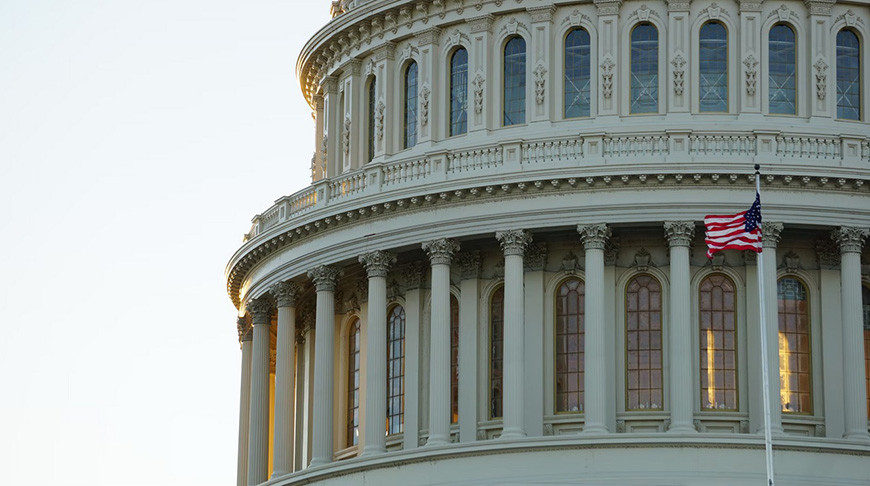
The invasion of Iraq was a kind of attempt at revenge for George W. Bush. After all, his father, the 41st President of the United States, George H.W. Bush, who unleashed a war against Iraq in 1991, was never able to overthrow the regime of Saddam Hussein.
The September 11 attacks, in a sense, gave the United States a free hand. The U.S. authorities coined the term "axis of evil." It designated countries that, according to Washington, sponsored terrorism or developed weapons of mass destruction. Iraq also fell into the U.S. “axis of evil".
In 2002, Washington launched an information campaign against Saddam Hussein. The Americans claimed that Hussein was associated with al-Qaeda terrorists. It was despite the fact that the Iraqi leader at that time was at war with Islamist groups. The United States also claimed that Iraq was developing weapons of mass destruction although the U.S. intelligence data indicated the opposite.
In the autumn of 2002, the UN Security Council adopted Resolution 1441 mandating Iraq to receive UNMOVIC and IAEA inspectors. The inspectors were to make sure that Iraq had not launched WMD programs during their absence since 1998. As a result, the Iraqi authorities agreed to the resolution and let international inspectors into their country. The UNMOVIC Commission was in Iraq searching for weapons of mass destruction right up to the outbreak of the war, but found no evidence that their production began.
"An original sin" How did Colin Powell become a symbol of U.S. lies?
Colin Powell, who served as U.S. Secretary of State under Bush Jr., said bitterly before his death in 2021 that he would be remembered as the man who spoke at the UN Security Council justifying the impending war against Iraq.
Of course, it was not Powell who started the war in Iraq. The invasion was initiated by George W. Bush, Vice President Richard Cheney and Secretary of Defense Donald Rumsfeld. However, it was Powell who, with a laboratory test tube in his hands, became a symbol of the great American lies and manipulation.
The White House knew that Powell enjoyed authority among foreign diplomats and had a reputation as a cautious person. Therefore, they entrusted him with the mission of opening the doors to war. Powell had only four days to prepare the speech, but when he entered the UN Security Council hall, he said he felt confident.
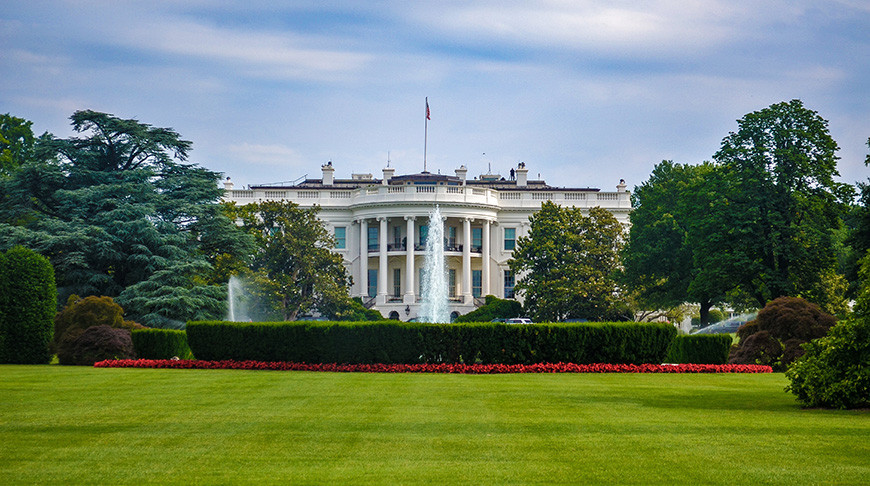
Powell's famous address was delivered to the Security Council on 5 February 2003. The secretary of state, holding up a tiny vial of white powder, announced that Iraq had weapons of mass destruction and that the United States had all the evidence.
“My colleagues, every statement I make today is backed up by sources, solid sources,’’ Powell told the Security Council. “What we are giving you are facts and conclusions based on solid intelligence.”
The secretary of state cited information from an Iraqi defector, Rafid Ahmed Alwan al-Janabi. Powell introduced him as an Iraqi chemical engineer who worked at one of the mobile biological weapons production facilities in Iraq. In effect, al-Janabi's words became an excuse for the U.S. and its allies to go to war in Iraq.
Years later, the British newspaper The Guardian interviewed al-Janabi. The man said that he had deliberately lied about Hussein's biological weapons program. He said he did not expect to be believed so easily. But the intelligence services did not disavow his information even after the check of the sources cited by al-Janabi did not corroborate his accounHere's what Powell said about it afterward: "There were some people in the intelligence community who knew at that time that some of these sources were not good, and shouldn't be relied upon, and they didn't speak up. That devastated me."
Powell called his UN speech a great intelligence failure. "When I made that presentation in February 2003, it was based on the best information that the Central Intelligence Agency made available to me. We studied it carefully; we looked at the sourcing in the case of the mobile trucks and trains. There was multiple sourcing for that. Unfortunately, that multiple sourcing over time has turned out to be not accurate... And for that, I am disappointed and I regret it," the former secretary of state told NBC in 2004.
And here is what Richard Gowan, UN director at the International Crisis Group, had to say about Powell's role: “Powell’s speech on Iraq marked a turning point in U.S. relations with the UN. I don’t think that Washington’s credibility at the UN has ever entirely recovered from the Iraq war and the false claims on WMDs. Obviously Obama rebuilt U.S. credibility at the UN to a significant degree, and Trump trashed it. Now Biden is in rebuilding mode again, but non-western diplomats still raise Iraq as proof that you can’t quite trust the U.S. at the UN. It’s become the original sin of U.S.-UN relations, and in fairness Powell recognized that after the event.”
They say evil begets evil. Powell's speech is a case in point. When trying to prove the link between Hussein and al-Qaeda, Powell mentioned the name of terrorist Abu Musab al-Zarqawi 21 times in his address to the UN. According to an investigation by U.S. public television PBS, Powell’s U.N. speech helped elevate Zarqawi’s status, and within months, he was rapidly gaining followers in Iraq, fomenting sectarian warfare and laying the groundwork for the organization that would become ISIS.
Shock and awe: How did the invasion of Iraq begin?
Despite all efforts, Washington failed to win the support of the international community for the invasion of Iraq. Even its allies - France, Germany and Canada - opposed the military intervention. In February 2003, mass protests against the war in Iraq took place in a number of countries.
On the eve of the invasion, Chief United Nations weapons inspector Hans Blix said that Iraq was cooperating with the IAEA. In this regard, he asked for additional time for inspections. But the U.S. did not wait - either for the IAEA findings or for the UN Security Council to approve the military operation.
“We come to Iraq with respect for its citizens, for their great civilization and for the religious faiths they practice. We have no ambition in Iraq, except to remove a threat and restore control of that country to its own people… We will defend our freedom. We will bring freedom to others and we will prevail,” George W. Bush said on 20 March 2003.
On this day, the U.S.-led coalition of more than 30 nations, closely supported by the United Kingdom, launched a fully-fledged invasion of Iraq. The invasion became to be known as Operation Iraqi Freedom. The number of U.S. forces in Iraq peaked at 170,000. The largest contingents were deployed by the UK (up to 45,000 people), Italy (up to 3,200), Poland (up to 2,500), Georgia (up to 2,000) and Australia (up to 2,000).
The war began with rocket and bomb strikes on Iraq. The declared purpose of the operation was to destroy weapons of mass destruction, which, as Washington claimed, Iraq possessed. “The people of the United States and our friends and allies will not live at the mercy of an outlaw regime that threatens the peace with weapons of mass murder,” Bush solemnly proclaimed.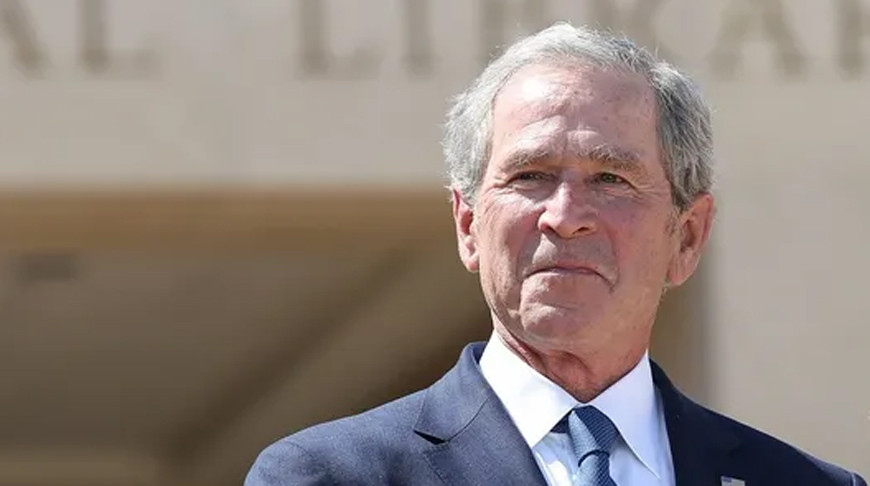
Another goal was to overthrow Iraqi President Saddam Hussein. “In this conflict, America faces an enemy who has no regard for conventions of war or rules of morality. Saddam Hussein has placed Iraqi troops and equipment in civilian areas, attempting to use innocent men, women and children as shields for his own military - a final atrocity against his people. I want Americans and all the world to know that coalition forces will make every effort to spare innocent civilians from harm,” President Bush said.
The USA used a military strategy called ‘shock and awe’ (technically known as rapid dominance). Instead of destroying the enemy’s military capability, it was focused on breaking the enemy’s resolve and ability to resist by paralyzing the work of power facilities and logistics infrastructure, communications, food production and water supply. In this scenario, the goal was to cause panic, confusion and paralysis, similar to what the Japanese people experienced during the bombing of Hiroshima and Nagasaki.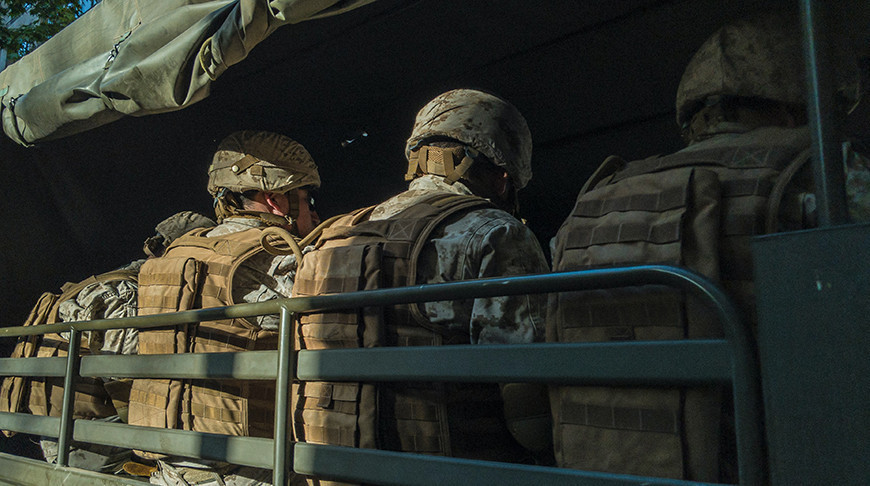
The coalition troops advanced rapidly. The allies achieved complete air superiority, they had better weapons and better communication between troops. On 9 April they occupied the capital of Iraq - Baghdad. Footage showed a statue of Saddam Hussein being pulled down by the coalition soldiers amidst a crowd of cheering Iraqis.
On 1 May, 40 days after the invasion, George W. Bush delivered his “Mission Accomplished” speech declaring the end of major combat in Iraq. He said that the United States and its allies had prevailed and were now moving on to post-conflict stabilization and rebuilding.
Bush had to admit that weapons of mass destruction had not yet been found. "We know that there were weapons of mass destruction. We will find out whether they were destroyed, relocated or hidden,” the U.S. president said trying to justify his actions.
This “truth” about the WMDs was never found by the United States or its Western comrades-in-arms who bombed Iraq. Later, UN inspectors and the U.S. military came to the conclusion that Baghdad did not have weapons of mass destruction programs, and Saddam Hussein had no links to the al-Qaeda terrorist group, which the USA accused him of.
In December 2005, Bush admitted that U.S. intelligence was off base. “Intelligence data turned out to be wrong. As president, I bear full responsibility for the decision to enter Iraq,” Bush said.
Bush’s ‘mistake’ led to the collapse of the Iraqi statehood and the loss of hundreds of thousands of civilian lives. However, the U.S. leader never repented. He did not step down. And the international court in the Hague did not issue a warrant for his arrest.
But they did indict Saddam Hussein. The Iraqi leader was sentenced to death and executed on 30 December 2006, the first day of Eid al-Adha, known as the Feast of Sacrifice in the Islamic world.
Poverty, riots and terrorist attacks. What did ‘Iraqi Freedom’ bring?
Baghdad fell, but the Iraq War was just beginning. The U.S. invasion led to the total collapse of the Iraqi economy. Poverty and devastation disrupted livelihoods across the country, Iraqi cities were swept by relentless looting sprees. There were riots everywhere.
The United States and its allies chose to stand by as widespread looting engulfed Baghdad and other Iraqi cities, Human Rights Watch wrote in a 2005 report.
“The initial days following the fall of the Saddam Hussein government set the tone for what turned out to be a devastating and violent occupation and political transition. Common criminals terrorize Iraqis with kidnappings and extortion schemes. Insurgents daily target vulnerable civilians, as well as military targets, with suicide bombers and roadside bombs. Revenge killings started slowly but grew to be virtually daily events with perceived Ba'thist supporters, and later those identified as supporting the U.S.-led occupation, caught in the crosshairs. Cities once cited as evidence of the success of the U.S. led coalition's occupation such as Mosul have become bloody battlegrounds. U.S.-led military operations against insurgent forces have resulted in unknown numbers of civilian casualties and destroyed property,” the organization wrote in its report.
Washington initially relied on the Shiites who chose to be neutral at the very beginning of the U.S. military operation. However, this caused discontent among the Sunnis. As a result, a sectarian conflict broke out in the country between Sunnis, Shiites and Kurds.
After some time, the Shiite community also began to oppose the occupying forces. That sparked a real guerrilla war. The USA had to build up its military presence in Iraq. The number of those killed grew.
Ben Hodges, a retired United States Army officer who served as commanding general, United States Army Europe, gave his account of those events: “It was a very odd feeling. I remember myself thinking at the end of our first trip to Iraq that we were doing pretty well there, we were succeeding. Of course, I was only responsible for a small area in northern Iraq - the area of Mosul to the south of it. But it seemed to me that we were doing the right thing and our strategy was working. So I was very optimistic when I came to Iraq for the second time, in 2005, and then back in 2006. And that's when I saw that everything was already different. The clashes were much more bloody, the situation got out of hand, and the enemy became stronger.”
The terrorists of the local offshoot of al-Qaeda took advantage of the chaos. In 2013 the al-Qaeda branch in Iraq established a separate organization that came to be known as the Islamic State. Terrorist attacks in Iraq became a frightening routine. All in all, over 31,000 terrorist acts took place in the country between 2003 and 2013.

The USA tried to suppress the insurgents and Islamists. In November 2004, American troops, along with Iraqi government forces and the UK military, began to storm the city of Fallujah, which had become a stronghold for the insurgents. Some 800 Iraqi civilians were killed in the fierce fighting, according to the Red Cross. It was also reported that the United States used white phosphorus during the assault.
In 2005, parliamentary elections were held in the country and an interim government was formed. However, this did not bring peace. Sectarian violence metastasized into a full-blown civil war.
2007 was the worst year in terms of casualties for the U.S. Army since the start of the Iraqi campaign. During this year, 899 U.S. servicemen died. In total, from March 2003 to November 2007, the losses of the U.S. Armed Forces amounted to 3,855 military personnel.
Contingents of all coalition countries, except for the United States, had left Iraq by August 2009. In 2010, U.S. President Barack Obama delivered an address to the nation, saying that Operation Iraqi Freedom was over, and that it was time for the United States to start restoring its economy and reducing the unemployment. The last convoy of U.S. troops left Iraq in December 2011.
Control over the security situation in Iraq was passed to the local government. The United States gave its military bases away to the Iraqi security forces.
The U.S. have never delivered on its promises to eradicate terrorism and lead the Iraqi people to freedom. The United States left Iraq plagued by extremism, economic crisis, and weak state institutions.
The Islamic State terrorists who settled in the country then posed a particular threat. In 2015, the Iraqi authorities launched a large-scale campaign to liberate areas occupied by terrorists. At that time, ISIS controlled a total area of over 90,000 square kilometers in Iraq and neighboring Syria. Iraqi forces managed to regain the captured cities only in 2017.
Abu Ghraib, “raids” and cluster munitions. What do human rights activists accuse the USA of?
The U.S.-led invasion of Iraq was accompanied by numerous facts of gross violation of human rights and violation of international humanitarian law.
Abu Ghraib prison has become a symbol of foreign military brutality in the eyes of Iraqis. After the overthrow of Saddam Hussein, the prison came under the control of the U.S. military, who brutally tortured the supporters of the former government and the rebels. In 2004, the U.S. broadcaster CBS aired photographs showing the torture of Iraqi prisoners. The pictures were taken by the guards of Abu Ghraib prison. The Washington Post later reported that prisoners were forced to renounce Islam and were force-fed pork. Many were subjected to sexual humiliation and violence.
Torture in Abu Ghraib has become the biggest scandal around the USA presence in Iraq. Later the U.S. authorities had to acknowledge the facts of violence and several U.S. soldiers were tried for violating the rights of prisoners.
But new evidence of torture and abuse of Iraqis detained by the U.S. military kept emerging. In 2006 Human Rights Watch stated: “The report is based largely on firsthand accounts by U.S. military personnel stationed in Iraq, and describes constant and severe beatings of detainees, as well as methods that included painful stress positions, sleep, food and water deprivation, exposure to extreme heat or cold, and the use of chemical reagents on detainees’ skin and eyes. Statements by military personnel suggest that the violations came as the result of connivance by the military and civilian leadership and an inadequate understanding of acceptable interrogation techniques and the applicability of the Geneva Conventions. All the aforesaid refutes the Bush administration's claims that violations in the treatment of detainees abroad come as individual exceptional cases and have nothing to do with political attitudes.”
Human Rights Watch also raised concerns about the crimes of the U.S. military against the civilian population. “The U.S. military does not keep statistics on civilian casualties. They said they were unable to provide accurate records, which suggests that civilian casualties are not a priority issue for them,” the human rights organization said.
The civilian deaths in Baghdad could be categorized in three basic groups, Human Rights Watch said in its report. The first group includes those killed during U.S. military raids on homes in search of arms or resistance fighters. Second were civilian deaths caused by U.S. soldiers who responded disproportionately and indiscriminately after they came under attack. Human Rights Watch documented cases where, after an improvised explosive device detonated near a U.S. convoy, soldiers fired high caliber weapons in multiple directions, injuring and killing civilians who were nearby.
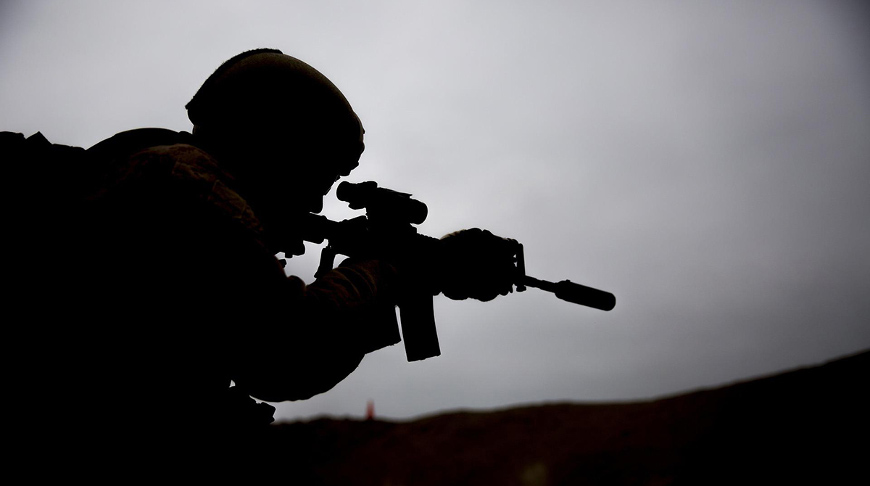
Third were killings at checkpoints when Iraqi civilians failed to stop. A dearth of Arabic interpreters and poor understanding of Iraqi hand gestures caused confusion, with results sometimes fatal for civilians.
“In any of the above scenarios, the actions of U.S. military can be accompanied by arrogance and inconsideration: they often put their foot on the head of a detained Iraqi (which is considered highly offensive in Iraq); there have also been cases when male servicemen have touched or even searched Iraqi women, which is considered completely unacceptable in this country,” the human rights activists noted.
Hundreds of civilians were killed or injured by cluster munitions. Despite the particular danger of these weapons, the U.S. and UK military repeatedly used them against Iraqi positions in residential neighborhoods. Unexploded ordnance poses a particular danger to the population. Tens of thousands of unexploded elements of cluster munitions used by coalition forces turned into anti-personnel mines.
Catastrophic consequences. Who will be held accountable?
Twenty years after the start of the invasion of Iraq, the perpetrators of war crimes and human rights violations are still not punished. This has been particularly mentioned by the human rights organization Amnesty International.
Between 2003 and 2011, Amnesty International documented U.S. forces’ engagement in rampant violations, including indiscriminate attacks that killed and injured civilians, secret detention, secret detainee transfers, enforced disappearance, torture and other cruel, inhuman or degrading treatment. Former detainees credibly alleged a litany of abuses in detention centers, including sleep deprivation, forced nudity, deprivation of adequate food and water, mock executions and threats of rape.
“To this day Iraqis are suffering from the devastating impact of war crimes and other atrocities perpetrated by the United States-led coalition in its invasion and subsequent occupation of Iraq,” said Elizabeth Rghebi, Middle East and North Africa Advocacy Director at Amnesty International USA.
Twenty years on, impunity reigns supreme in Iraq. The USA has failed to adequately investigate the widespread human rights violations and war crimes committed by U.S. forces and to hold those responsible to account at all levels, including senior U.S. officials and commanders. Victims of gross human rights violations, including detainees who survived torture and other ill-treatment at Abu Ghraib, have overwhelmingly been denied their rights to justice and reparation. The Iraqi victims who attempted to seek remedy for U.S. human rights violations in U.S. courts have faced systematic obstacles.
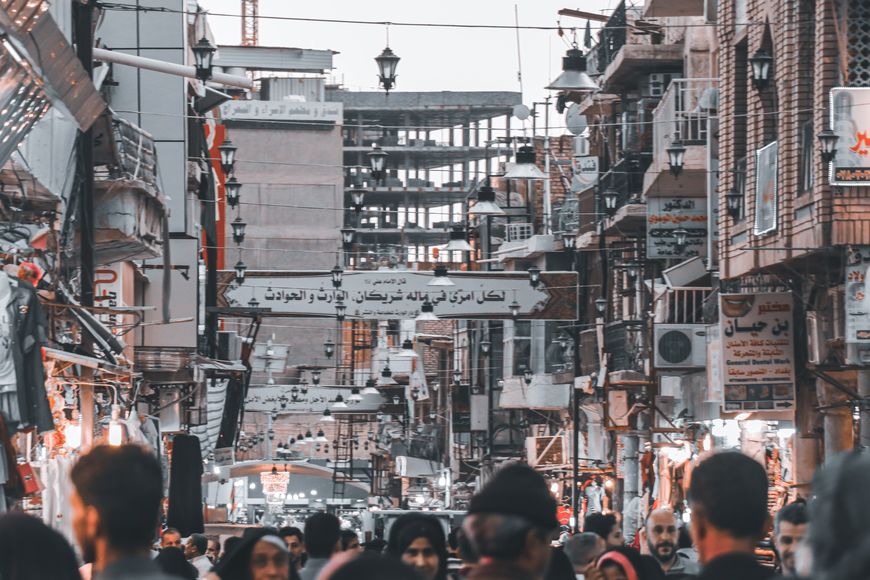
Amnesty International has already called on the U.S. government to establish a genuine independent commission to investigate detention and interrogation policies and practices in Iraq, but so far several U.S. administrations have failed to do so.
There have been several investigations that have resulted in dozens of U.S. soldiers, mostly enlisted men, being court-martialed for mistreatment of detainees. However, no senior U.S. administration official has been held accountable for crimes committed in Iraq since 2003 despite public admissions by former President George W. Bush Jr. and former Defense Secretary Donald Rumsfeld of involvement in secret detentions - actions that under international law should trigger criminal investigations. Nor have high-ranking British officials been prosecuted despite the International Criminal Court’s finding in 2020 that British soldiers committed war crimes in Iraq, including premeditated murder, torture and rape.
“In addition to the egregious violations committed by the U.S. forces and allied forces against Iraqis, ill-conceived U.S. policies such as the so-called ‘de-Baathization’ process, the dismantling of security institutions, and the import of vast quantities of weapons into the country have contributed to the creation of complete security vacuum in the country, leading to an escalation of sectarian conflicts. After the invasion Iraq descended into violence and impunity, which was also partly facilitated by the policies of the U.S.-led coalition. These catastrophic consequences of the invasion still cause further casualties among Iraqis today,” Amnesty International states.
Hundreds of thousands died, millions fled. What does American “freedom” taste like?
Themilitary invasion, the civil war and terrorism have claimed lives of hundreds of thousands of Iraqis. According to some estimates, military actions of 2003-2011 alone resulted in deaths of almost half a million of the country’s residents. In addition, millions of Iraqis were forced to leave their homes, many of them fled to other countries.
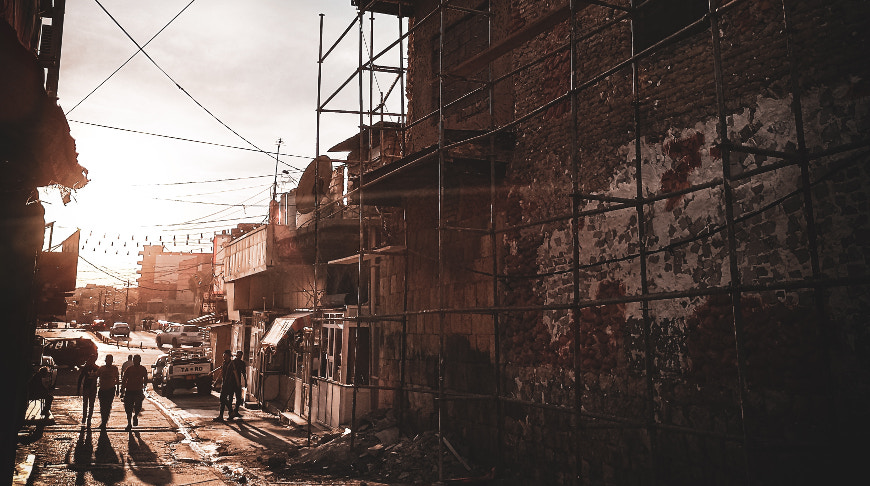
Losses of coalition troops are estimated at about 5,000 people, of whom about 4,500 are U.S. soldiers. In addition, tens of thousands of soldiers were wounded.
“The war in Iraq stands out even against the background of all these momentous events. It is no exaggeration to say that it was the war that finally destroyed hopes for the creation of a just and democratic world order at the beginning of the 21st century. In many respects, the war in Iraq turned out to be an unprecedented crisis that goes beyond all previous U.S. actions aimed at consolidating the ‘unipolar world,” noted Andrei Kortunov, Director General of the Russian International Affairs Council.
First, the intervention stood out for its scale. The operation involved hundreds of thousands of troops, including land, air and naval forces, the Marine Corps, the U.S. National Guard, military contingents from the UK, Australia and Poland, not to mention military support and other kinds of support from many other allies and partners of Washington.
Second, the operation is still firmly associated with epic failures of the U.S. intelligence service. The pretext for launching the invasion was the never proven allegations that Saddam Hussein had weapons of mass destruction. Although the military operation itself was completed within three weeks, the accompanying plans to quickly transform Iraq into a viable Western-style liberal democracy ended in a total failure.
Third, the intervention in Iraq has divided not only the international community in general, but also the West in particular. The United States failed to win support for its actions either in the UN Security Council or even within NATO. France and Germany, not to mention Russia and China, openly opposed it. Türkiye refused to make its territory available to the international coalition, and in the UK the war provoked a political crisis. The usually very cautious UN Secretary General Kofi Annan described the US-led invasion of Iraq as illegal and a violation of the UN charter.
Fourth, the invasion and subsequent occupation of Iraq, one of the leading Arab countries, had long-lasting and wide-ranging consequences for the entire Middle East region, some of which have not been overcome to this day. “The destruction of Iraq shook the established balance between Shiites and Sunnis, gave impetus to the rapid rise of Islamic fundamentalism and international terrorism, launched a chain reaction of statehood crises in a number of countries in the Middle East and North Africa, which seven years later turned into the drama of the Arab Spring,” Andrei Kortunov noted.
And here are the conclusions reached by Euronews, which broadcasts Western “democratic” values: “Twenty years after the U.S.-led invasion of Iraq many of the country’s problems not only remain unresolved, but have even worsened.
Billions of dollars in revenues from record-high oil prices flow abroad, parts of the country are effectively outside the control of the capital, and the establishment of a stable government has consistently failed. Millions of young Iraqis are unemployed and have difficulty envisioning a future.”
The immediate cause of the invasion – Hussein’s alleged weapons of mass destruction - was never found, the TV channel noted. Today it makes one believe that the invasion was actually a violation of international law. Saddam Hussein was eventually overthrown, but his trial and execution also raised doubts about legality. And the 20 years that followed brought Iraq only continuous bloody conflicts and the global growth of radical Islamism as a response to Western actions, Euronews says.
In April 2023, on the 20th anniversary of the invasion of Iraq, the BBC released polling data from the non-profit international organization Gallup International. The poll was conducted in all 18 mohafadhas of Iraq among a representative sample of 2,024 adult residents.
When asked about the current state of Iraq compared to what it was before the U.S. invasion, 60% of the respondents said it had worsened, while 40% said it had improved. A majority of Sunni Muslims, some 54%, believe life was better under Saddam Hussein.
Despite the U.S. government’s excuses many Iraqis remain skeptical about the true motives for entering the war. Some 51% of Iraqis believe that the USA invaded Iraq to steal its resources.
According to the poll, Iraqis are divided over the U.S. involvement in the country in the future. The number of U.S. soldiers in Iraq reached a peak of almost 170,000 in 2007 and is about 2,500 military personnel today.
On the whole, 47% of Iraqis believe the USA should withdraw from Iraq immediately. Another 12% favor setting a timetable for the withdrawal of U.S. troops. 17% believe the USA should stay until security forces no longer need them. 13% want the USA to maintain a presence in Iraq. 6% fear the return of the Islamic State after the USA leaves, and 5% fear Iraq will lose sovereignty.
According to the survey, nearly one in three Iraqis between the ages of 18 and 24 want to leave their country.
Coming under the slogans of democracy and freedom, the USA and its allies destroyed and devastated an entire nation. For Iraqis, American “freedom” had a metallic aftertaste. Hundreds of thousands of people had to pay for it with their lives. The war was a tragedy for the Iraqi people. Today, two decades after the American invasion Iraq continues to struggle with internal disunity and economic decline.













